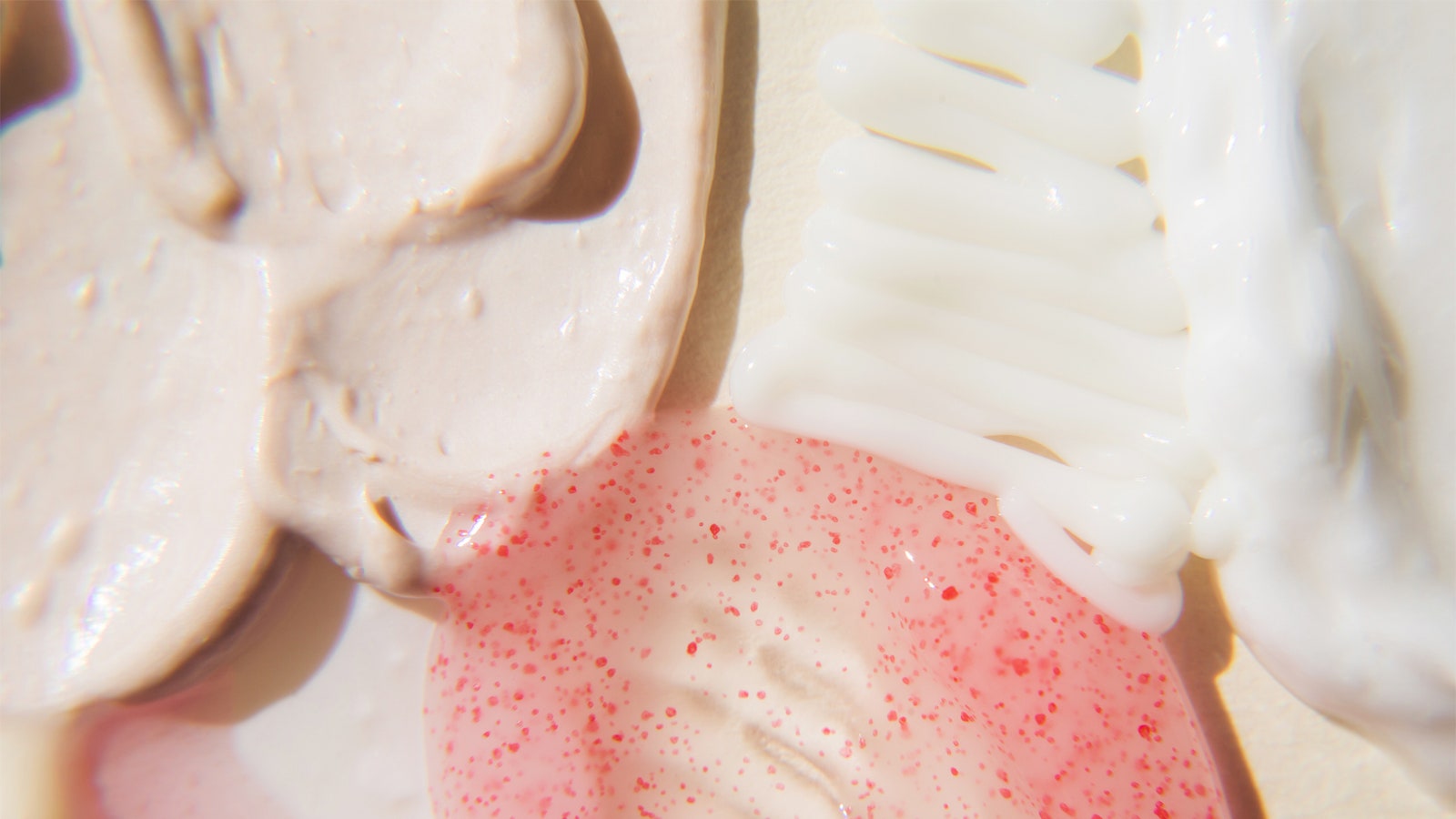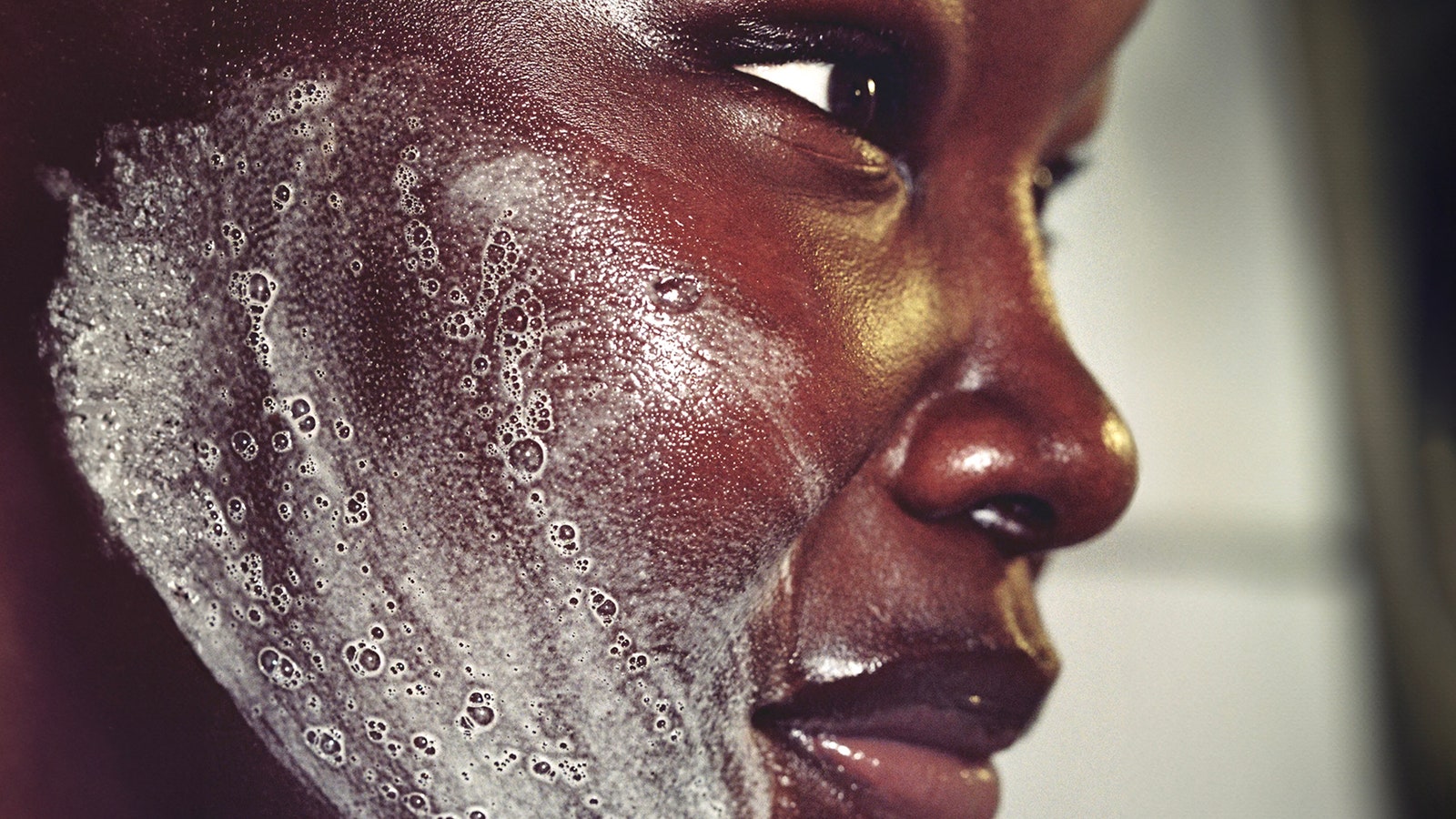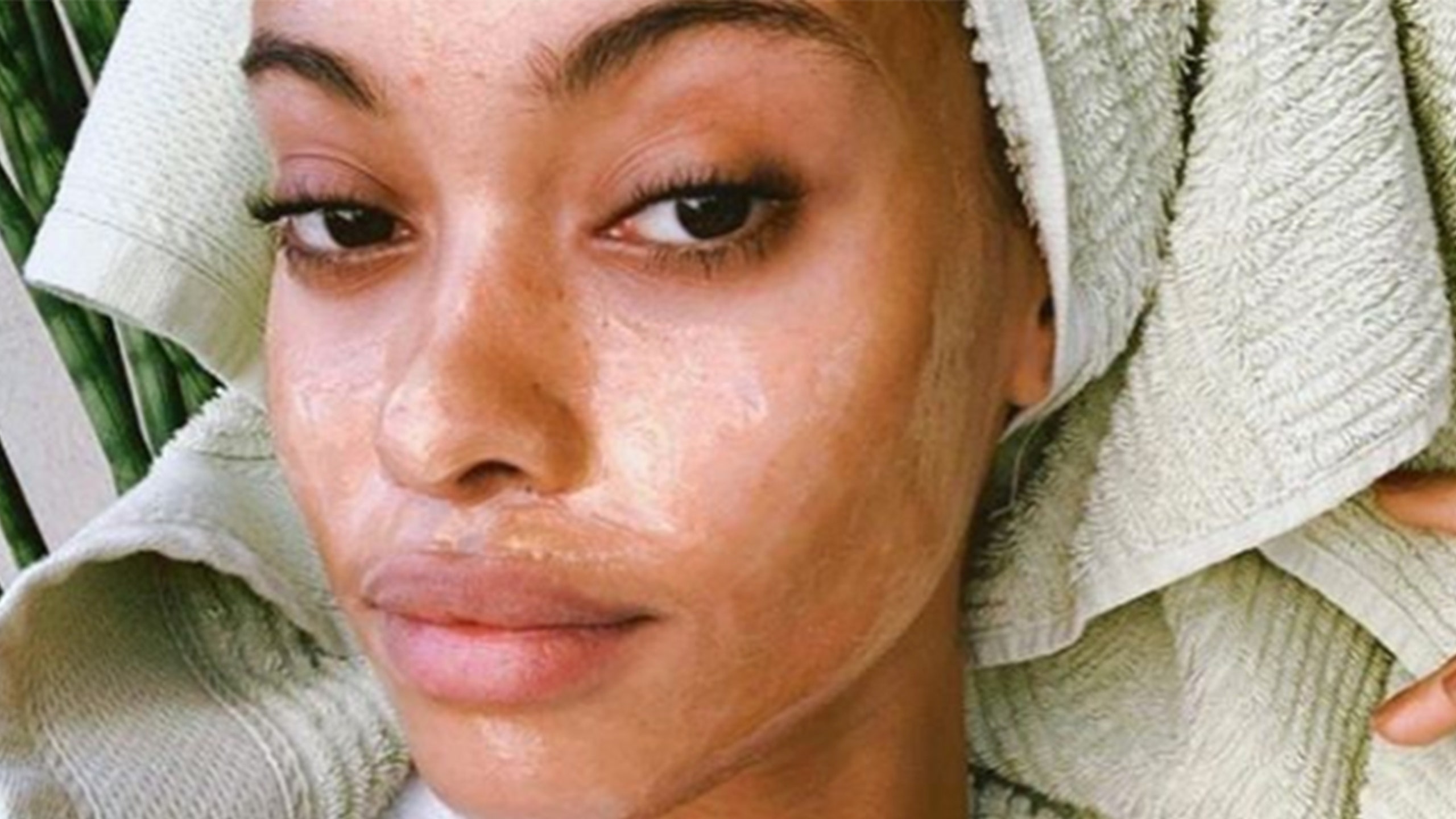We’ve seen it throughout history. In turbulent times, our beauty routines offer a welcome escape. Skincare offers us sanctuary and our makeup let’s us paint on a brave face when we’re not feeling so fierce. “During WW2, women used vegetable dyes as makeup. And during the recession, sales of lipstick increased,” points out psychotherapist, Lucy Beresford. “We can see the way makeup and skincare give us a powerful psychological boost, making us feel confident, nurtured and in control.”
But alongside psychology, practicality is playing into the choices we’re making around our beauty routines. With many of us working from home and swapping social engagements for evenings in, we’ve re-focused where we’re spending our time and effort.
According to research from L’Oreal’s head of insights, Heike Oulaghan, “25% of our personal care occasions” such as putting on makeup, washing our hair or wearing perfume, rely on circumstantial triggers “like getting ready for work or school”. Put in perspective, this equates to 22.4 million personal care occasions. The cost of not wearing deodorant, for instance, (which a surprising number of us have decided to abandon while we stew in our trackie bums), could be as high as £2 billion to the beauty industry.
That said, makeup remains an important step for many. Over half (53%) of 1,800 women polled by No7 in the UK said they felt “more positive when they wear makeup while in lockdown.” Almost a third credited it with boosting their mental health and 46% admitted to wearing it every day, despite staying home for the most part.

The thing is, even in the midst of a pandemic, we’ve had to keep calm and carry on. We still have occasions we need to get ready for, albeit mostly virtual. “Work video conferences seem to be one of the main reasons for this, with 45% of women choosing to apply makeup for meetings on Zoom or Skype” say No7.
Even so, the amount of makeup we’re wearing (and the time we’re spending on it) has reduced. 82% of us are wearing less and 56% prefer a more minimal look for video calls with colleagues, friends and family.
Welcome to the winter of skinimalism.

So where has our focus shifted? Unsurprisingly, it’s skincare. Across the board, retailers have noticed the same three products – moisturiser, cleanser and hand cream – climbing the beauty leaderboard. These are the “top three trusted must-have beauty items,” according to No7. And increased attention on self-care has seen face masks and retinol shoot up, too.
Moisturiser is up 18%
According to CeraVe's Marketing Director, Gizela Lascelles, increased attention around self care has resulted in an 18% increase in using facial moisturiser. Online, the conversation around hydration has increased by 23% and Google searches for "hyaluronic acid serum" have shot up by 124% since the start of lockdown.
A strange phenomenon during the pandemic has been the rise in people reporting dry skin. "With there being a huge amount of uncertainty during this unprecedented period, stress and anxiety increases our hormones within the body which triggers inflammation and oxidative stress," explains No7's Skincare Scientific Advisor, Dr Mike Bell. This can result in increased dryness. Those searching for hyaluronic know what they're doing, it's one of the best solutions you can find for quenching dehydrated complexions.

Retinol is up by 134%
Retinol is a tricky one. Its reputation for causing skin sensitivity tends (unsurprisingly) to put a lot of people off. The fact that you have to build up a tolerance by slowly introducing it to your skin sounds slightly terrifying, not to mention confusing. But the extra time we've had at home to concentrate on our skincare, has seen lots of us trying to get to grips with is. As such, the conversation around it has grown by 134% according to skin expert, Dr Emma Craythorne. Given it's the gold standard in skin smoothing and wrinkle-busting, it's a high-performance ingredient worth exploring.

Face masks are up 35%
Instead of spending our evenings down the pub, we're spending them in our bathrooms, or in front of the telly where – being the multi-taskers we are – we're very into quick fixes that feel like a treat, but work magic on our skin. Hence: face masks. "1 in 4 women (and 1 in 2 Gen Z and Millennials) are finding ways to treat themselves during this time," says Gizela. Which is why the use of face masks loaded with nourishing, brightening or clarifying ingredients has grown by 35%.

Cleansing is up 25%
More than ever before, we're ultra aware of hygiene. Therefore we mean business when it comes to cleansing our faces. "Conversation has moved away from convenience and affordability, towards ingredients and suitability for different skin types," explains Gizela. Alongside this, it's become an important self-care ritual – especially if you razz it up by incorporating a little massage action into it.

Hand cream is up 40%
Repeated hand-washing and sanitising has led to sales of hand creams going up by 40% according to intel from CeraVe. Skin irritation and instances of eczema have surged during coronavirus, so nourishing salves that help to protect the skin barrier and replace lost moisture have been essential.


